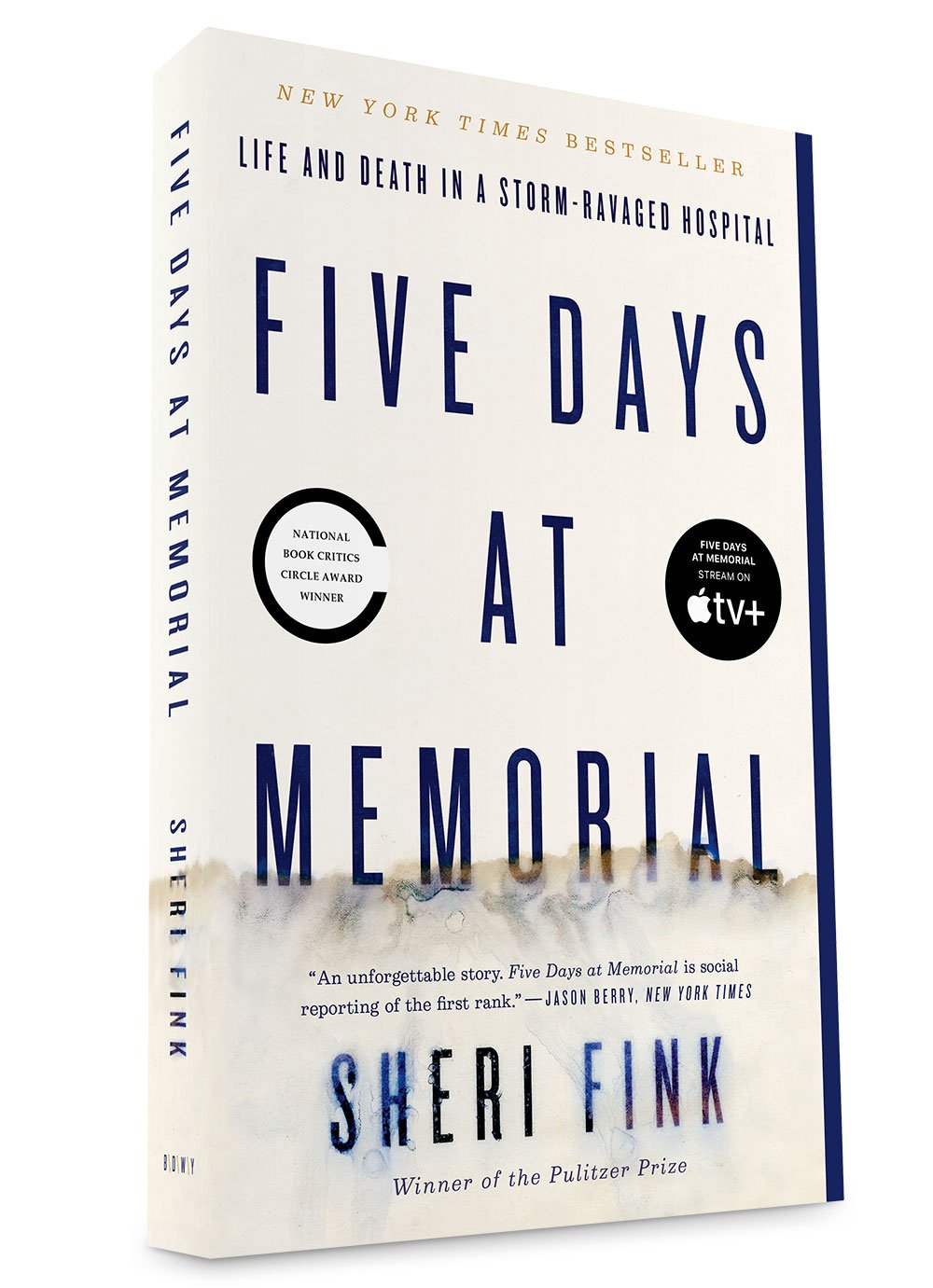Five Days at Memorial
Now available in paperback: AMAZON |
BARNES & NOBLE | POWELLS | INDIE BOUND |
Also in eBook: KINDLE | NOOK | iTUNES
Five Days at Memorial, winner of the National Book Critics Circle Award, PEN/John Kenneth Galbraith Award, Ridenhour Book Prize, J. Anthony Lukas Book Prize, Los Angeles Times Book Prize, Southern Independent Booksellers Alliance Book Award, American Medical Writers Association Medical Book Award, and NASW Science in Society Journalism Book Award, is Pulitzer Prize winner Sheri Fink’s landmark investigation of patient deaths at a New Orleans hospital ravaged by Hurricane Katrina – and her suspenseful portrayal of the quest for truth and justice.
“Dr. Fink brings a shimmering intelligence to its many narrative cul-de-sacs, which consider medical, legal and ethical issues…. By reporting the depth of those gruesome hours in Memorial before the helicopters came, and giving weight to medical ethics as grounded in the law, Sheri Fink has written an unforgettable story. Five Days at Memorial is social reporting of the first rank.”
—Jason Berry, New York Times
War Hospital
Available on: AMAZON | AMAZON KINDLE | BARNES & NOBLE | NOOK | iTUNES
In April 1992, a handful of young physicians, not one of them a surgeon, was trapped along with 50,000 men, women, and children in the embattled enclave of Srebrenica, Bosnia-Herzegovina. There the doctors faced the most intense professional, ethical, and personal predicaments of their lives.
Drawing on extensive interviews, documents, and recorded materials she collected over four and a half years, doctor and journalist Sheri Fink tells the harrowing--and ultimately enlightening--story of these physicians and the three who try to help them. American Medical Writers Association book award; Citation for Excellence, Overseas Press Club; finalist, PEN-Martha Albrand Award.
"[Fink's] story is an antidote to the abstract calls of glory, honor and heroism... Yet she reaches beyond even these themes and confronts the role of humanitarian assistance in wartime, raising the larger question of what must be done in the face of genocide."
—Chris Hedges, The New York Times

